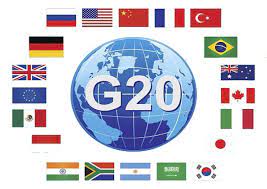G-20, which is an international forum for the governments and central bank governors from 20 major economies including China, Japan, UK, USA and more, has been pushing the agenda of cross border e-trade. India has been in the focus of these debates and is being pushed to engage in digital trade. But the countries who are forcing their agenda are developed countries, whereas India is still a developing country with an unsaturated market.
What will happen if India opens up to E-Commerce?
India has not utilized its full capacity when it comes to e-commerce. There is abundance of potential left to be explored. There are both sides of the coin to be examined regarding this issue. If India decides to allow cross border e-trade, the Small and Medium scale enterprises can establish themselves online. They can also find another market for buyer and seller interaction online.
However India’s primary focus should be on cyber safety and overall security of online transactions. Which means that opening up the markets without first securing the current load, will threaten the future of online transactions that happen on daily bases and other e-commerce companies like Flipkart.com and Amazon.in
G-20 meeting 2017 will see the length and breadth of this issue being discussed. Technology experts will tell you that India remains an untapped market for e-commerce. While this may be true, India’s potential is unfathomable. If the government decides to adopt WTO’s guidelines and enter the big league of e-commerce, a lot of changes can be predicted for Online India.







